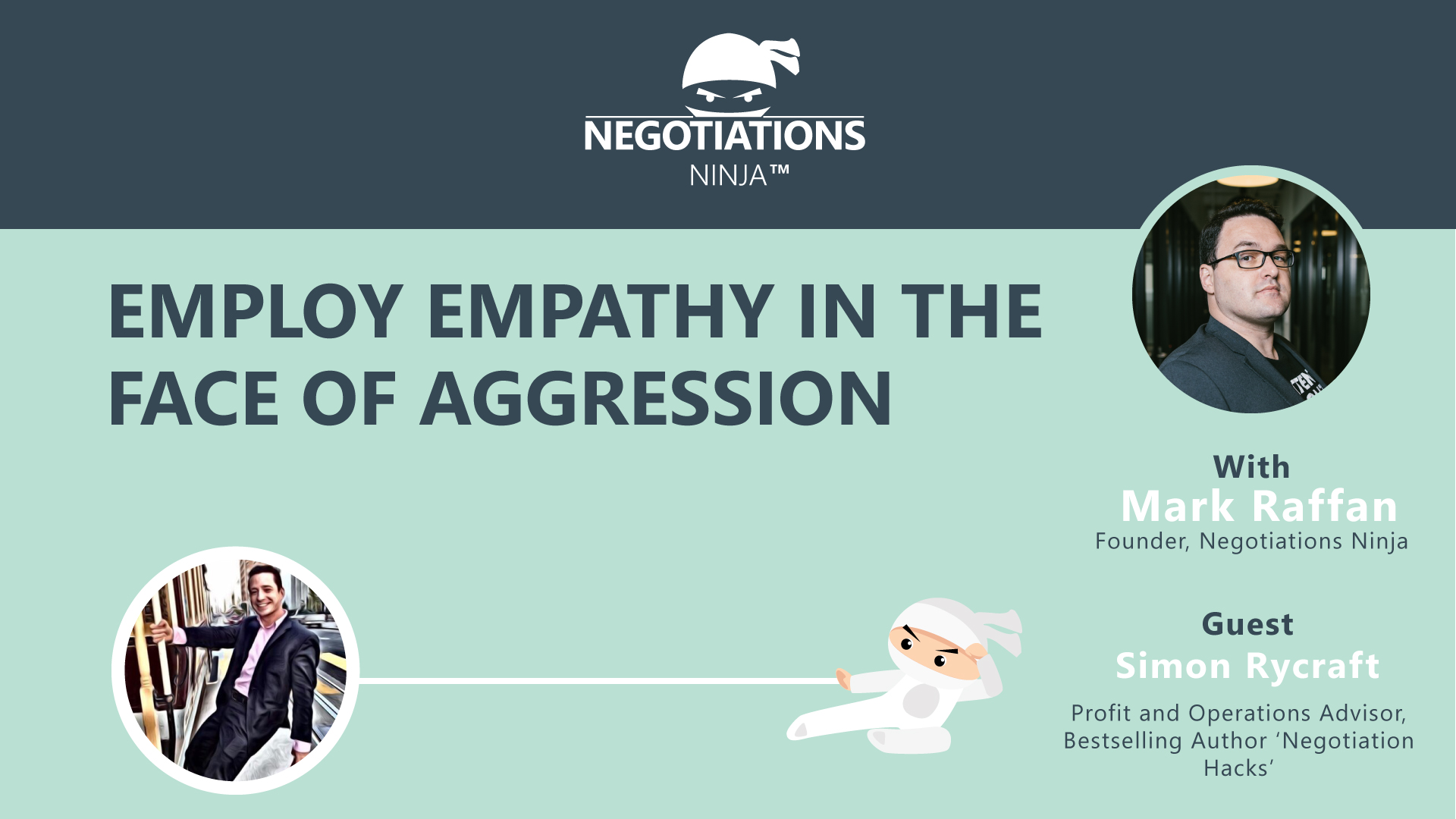Empathy in the face of aggression is an important trait to master. If you allow yourself to lose control of your emotions in a negotiation—it’s not only far from constructive—but can also cause you to lose the deal. How does empathy allow you to overcome negative emotions? What does true empathy consist of? Simon Rycraft shares his expert opinion in this episode of Negotiations Ninja.
Outline of This Episode
- [2:14] Learn all about Simon Rycraft
- [3:28] The importance of empathy in a negotiation
- [10:11] A conversation about information asymmetry
- [15:35] How failure is critical to learning
- [25:30] Learn about Simon’s upcoming books
The importance of empathy in a negotiation
It’s easy to react to aggression in a negotiation. When someone gets frustrated with you, you get angry because they’re angry. It’s a cycle of anger, and nothing gets resolved. It’s not necessarily the aggression that causes the failure of a negotiation—it’s the lack of control over emotions. It can cause you to make incorrect assumptions and can lead to bias and making threats. Simon believes that true empathy is a solution to all of those problems.
What does true empathy look like?
To be empathetic, you have to truly care. You don’t have to fully agree with your counterparty, but you must seek to understand their needs. Why are they feeling a certain way? Why do they want to take a specific direction? What’s in it for them as an individual? How is a decision impacting them?
Taking that approach—and not letting emotions take control—puts you in a more powerful position. Forced aggression and making demands will usually only end in disaster and rarely gets you what you want.
Many people view empathy as a weakness. But empathy is a tool like everything else. Using empathy helps you understand the feelings of the counterparty. Knowing why someone feels a certain way about something allows you to be creative with alternatives you might suggest.
Overcoming information asymmetry
At the beginning of a discussion about complex deals, there will be information asymmetry. They may know more about how to do the work. You may know where it needs to be done. You must ask the right questions to fill in knowledge gaps and to make your counterparty aware that you care. These collaborative conversations drive toward a more holistic resolution. Ultimately, it will make the deal better.
It’s not giving away too much information. It’s making the deal better. It doesn’t have to be a commitment but can simply be a conversation. This is something you can plan ahead of time. Make a list of questions that you need to be answered to fill the gaps.
You can be the most honest person in the world and ask the right questions—but humans are naturally distrustful. You need to take time to build rapport for them to trust that you’re being empathetic.
It’s not an easy thing to do. You can be trained to be emphatic in business and crises, but it takes time to communicate that. Anything you do to cause distrust or irritation causes people to question their original perception that you were being empathetic. It can take longer to regain trust.
Resources & People Mentioned
- Simon’s book, “Negotiation Hacks”
- Simon’s previous episode on Negotiations Ninja
- Ego is the Enemy by Ryan Holiday
- The Four-Hour Workweek by Tim Ferriss
- The Four-Hour Body by Tim Ferriss
- F*ckUp Nights
Connect with Simon Rycraft
Connect With Mark
- Follow Negotiations Ninja on Twitter: @NegotiationPod
- Connect with Mark on LinkedIn
- Follow Negotiations Ninja on LinkedIn
- Connect on Instagram: @NegotiationPod




